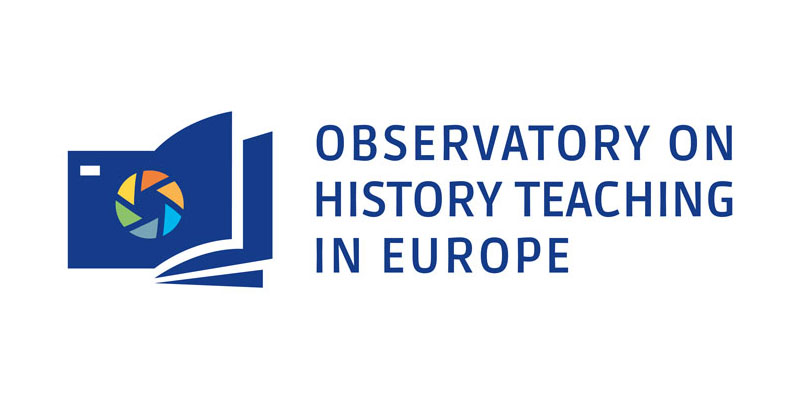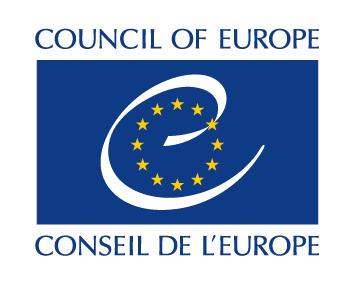EuroClio and the Council of Europe
EuroClio is currently working with the Council of Europe on two separate projects, the newly established Observatory on History Teaching in Europe and the Intergovernmental project on history education at the Education Department at the Directorate of Democratic Participation. EuroClio is furthermore a member of the Conference of International Non-Governmental Organisations (INGOs) of the Council of Europe.
The collaboration with the Council of Europe builds on three decades of involvement with the Organisation’s work on history education, dating back to EuroClio’s founding at the behest of the Council of Europe in 1992.


Observatory on History Teaching in Europe (OHTE)
What is OHTE and What is EuroClio’s Role?
To map the state of history teaching in Europe, EuroClio is involved in the development of the Regular Report for the Observatory on History Teaching in Europe (OHTE), initiated by the Council of Europe In November 2020, the Observatory was established by the Council of Europe in the form of an Enlarged Partial Agreement (EPA) with 17 of its Member States. The report will depict a clear picture of the way in which history is taught in the OHTE Member States. Unique about the OHTE is the provision of a longitudinal study in which all countries in the world can join to create an understanding of the current educational state of affairs. As of April 2022, Albania, Andorra, Armenia, Cyprus, France, Georgia, Greece, Hungary (Observer State), Ireland, Luxembourg, Malta, North Macedonia, Portugal, Serbia, Slovenia, Spain and Turkey are already taking part in the EPA, while more countries are recommended and invited to follow suit. EuroClio is taking part in the Expert Group for the Regular Report on the Teaching of History in Europe as a Consortium, and will be responsible for coordinating the research efforts, closely working together with other individual experts, the OHTE Secretariat and the Scientific Advisory Council (SAC).
See: https://www.coe.int/en/web/observatory-history-teaching/scientific-advisory-council
Aims and Objectives
The aim of the Observatory is to combat the decline of students learning history by promoting practices encouraging history education and fostering international cooperation to enhance the understanding of democracy and citizenship. Since 1954, the Council of Europe has worked on improving the quality of history teaching and providing a series of recommendations and teacher guidelines among other materials. However, there is a knowledge gap about to what extent the Member States have been able to implement the recommendations in practice. Therefore, the main objectives of OHTE are (1) to collect, process and share information on the extent to which the principles of quality history teaching from the Council of Europe are realised in practice, and (2) to resolve the lack of information on the international diversity of educational systems, teaching and curricula by making this information as concise and accessible as possible.
See: https://www.coe.int/en/web/observatory-history-teaching/about
Main Activities
The Regular Report is part of the OHTE series of research to develop reports on how history is taught differently across all Member States of the Enlarged Partial Agreement. Besides regular reports, OHTE will also provide more in-depth thematic studies on specific themes to explore contemporary, topical issues that could be given more justice than the regular studies is able to do. Furthermore, OHTE organises conferences and meetings in preparation and dissemination of the reports, and serves as a platform for its partner institutes and European professional associations.
See: https://www.coe.int/en/web/observatory-history-teaching/activities
Aims and Objectives of the Regular Report
- Need for knowledge; It is crucial that all countries have the means and knowhow to provide for qualitative historical teaching. The Regular Report Expert Group emphasises the need to understand the reasons for current state of affairs, to identify fake news, to know how to engage in a debate, and to learn how to listen. In regard to the OHTE, the Regular Report functions as a tool for all those who want to produce useful work for those in the classroom.
- Need to build bridges; The Regular Report Export Group believes that the OHTE stands out because it provides the opportunity for civil society to participate. What happens in the classroom is always a big mystery. This project will help to reduce this gap. The Observatory will help to find out what works. We need to work in the same mindset.
- Need to have a benchmark; As a final point, the Regular Report Export Group supports and contributes to the creation of a benchmark on what history education means from a multitude of cultural perspectives. While exact sciences have the possibility to standardise the provision of specific grades, the humanities have the possibility to compare and share insights only. A reference of comparison therefore contributes to debates on e.g. the question at what age schools should be teaching what. In short, the Regular Report will provide the unique opportunity to point out similarities and differences to gain more insights and understanding for all people involved in history education.
Activities of the Expert Group
The Regular Report Expert Group organises the research on international diversity of history education according to the research methods. That is why the experts are specialised in curriculum analysis, survey design and other research methods.
Overview of key events
-
- 12 November 2020 – The Council of Europe launches the Observatory on History Teaching in Europe as an Enlarged Partial Agreement.
- 18 May 2021 – The first session on the Observatory on History Teaching in Europe takes place online.
- 13 July 2021 – The Scientific Advisory Council meets for the first time to ensure the academic, scholarly and methodological quality of the Observatory’s work.
- 17 November 2021 – The first OHTE Expert Group Meeting launches stage 1 in the development of the Regular Report on the Teaching of History in Europe. The Expert Group begins with the practical implementation of the methodology, content and structure in preparation for the data collection.
Upcoming
- 31 March 2022 (16.00-17:00) – The Parliamentary Assembly of the Council of Europe (PACE) presents the report on the Observatory on History Teaching in Europe: Historical Thinking at the Service of Democratic Culture in an online webinar.
- April 2022 – Launch of stage 2: the OHTE Expert Group starts with the data collection to map the state of history teaching in Europe.
- September 2022 – Launch of stage 3: drafting the report.
- April 2023 – Launch of stage 4: publication and production of the report.
- September 2023 – Official presentation of the final version of the first Regular Report on the Teaching of History in Europe.
- October-December 2023 – Stage 5: dissemination of the report.
Intergovernmental project on history education
Council of Europe Education Department
EuroClio is actively involved in the Council of Europe’s “intergovernmental project on history education, from antiquity to the present day from a national, European and multiple perspective”. This work is included in the CoE’s future education programme for 2022-2025. EuroClio is represented in the Experts Working Group on History Education.
The CoE Education Department develops policies and practice to help member States build a culture of democracy through education. It covers all areas and levels of education.
The Education Department is engaged in both policy development and capacity building and co-operation. Its main instruments include:
- the European Cultural Convention (Article 2),
- the Lisbon Recognition Convention,
- the Reference Framework of Competences for Democratic Culture,
- the Charter on Education for Democratic Citizenship and Human Rights Education,
- Recommendation CM/Rec(2012)13 of the Committee of Ministers to member states on ensuring quality education, and
- the Common European Framework of Reference for Languages.
The department is overseen by the Steering Committee for Education (CDEDU) and its Bureau and manages projects throught its Education Policy division and its Capacity building and co-operation programme.
Role of EuroClio
Through the involvement in the Expert Working Group on History Education, EuroClio takes an active role in the CoE’s work on linking the Reference Framework of Competences for Democratic Culture to history education. EuroClio is also involved in the organisation of the Education Department’s Annual Forums, on topics of relevance to history teaching. The first Annual Forum took place in Belgrade in November 2022 and focused on the educational aspects of sites of remembrance and memory.
